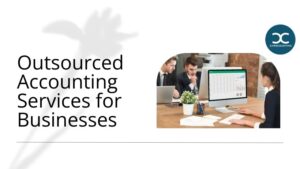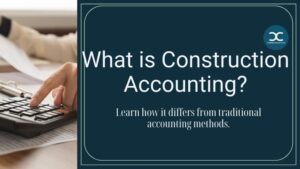Imagine navigating a labyrinth; each twist and turn, a new tax regulation or deduction to consider. Just as a skilled guide is essential in traversing a maze, a Certified Public Accountant (CPA) serves as a critical navigator through the complexities of tax preparation:
Walking this path alone is akin to setting sail without a compass.
As of March 6, 2023, the taxation landscape continues to evolve: laws change, new provisions come into play, and businesses must adapt to maintain compliance and optimize tax benefits.
Understanding the Role of a CPA
A Certified Public Accountant (CPA) is much more than a proficient number cruncher. These professionals comprehensively understand tax laws and business practices, ensuring your financial reports are accurate, legal, and efficiently structured. By integrating these crucial skills, they serve as strategic advisors who can significantly impact your fiscal health.
In the financial sphere, CPAs are akin to specialized physicians for your business’s economic well-being. With a stringent certification process involving rigorous examinations and continuous education, CPAs are equipped to navigate the labyrinth of tax regulations. Their expertise transcends mere calculation; they provide critical analysis and forward-thinking strategies, ensuring your enterprise’s most advantageous fiscal outcomes.
Expertise in Tax Regulations
Navigating the complex world of tax regulations requires specialized knowledge, often beyond the purview of the average business owner. A CPA possesses in-depth expertise and keeps up-to-date with the constant flux in tax codes, ensuring compliance and pinpoint accuracy in filings.
For many businesses, the nuanced interpretation of tax laws is akin to a navigable map within a labyrinth. A CPA’s guidance can illuminate pathways to tax advantages you might otherwise miss, turning a bewildering array of statutes into a tactical financial toolset.
Annual tax code changes average around 600; a CPA is your compass.
Deciphering the multitude of IRS regulations—a task daunting to most business owners—is second nature to CPAs. Their adeptness in understanding the implications of these laws can lead to strategies that mitigate liabilities and maximize potential deductions, thereby enhancing your enterprise’s financial health and ensuring that every transaction adheres to applicable regulations.
Strategic Tax Planning Value
Considering the dynamism of tax legislation, strategic planning’s value for local enterprises cannot be overstated.
Given recent reforms and frequent amendments, a CPA provides not just compliance but a proactive tax strategy that can substantially affect your business’s financial trajectory.
Moreover, a CPA can discern opportunities embedded within complex tax statutes, equating to significant savings or more advantageous fiscal positions for businesses.
Strategic tax planning involves a comprehensive review of business operations, investments, and growth plans, assuring that every facet aligns with the most beneficial tax strategy.
Ultimately, employing a CPA in strategic tax planning is an investment that seeks to bolster your business’s fiscal foundation for the long term.
Audit Representation Security
Engaging a CPA offers substantial support should your business face an IRS audit.
- Expertise: A CPA possesses deep knowledge of tax code intricacies, which is crucial during an audit.
- Preparation: A CPA prepares your business to withstand scrutiny through meticulous documentation and strategic tax practices.
- Support: CPAs provide representation, handle communication with the IRS, and reduce the hardship on business owners.
- Resolution: With their proficiency, CPAs work towards resolving audits efficiently, often resulting in more favorable outcomes.
- Compliance Assurance: Ongoing guidance from a CPA ensures that your business maintains compliance, deterring future audits. The right CPA is a steadfast ally, safeguarding your interests at every turn.
Their familiarity with IRS processes significantly mitigates the stress of audits.
Evaluating Personal Tax Complexity
As a business owner, assessing the complexity of your personal tax situation is critical. The myriad of tax codes and regulations can be daunting, and the implications of missteps are potentially severe. Are you navigating multiple income streams, investment portfolios, or international transactions? Perhaps you have substantial deductions, credits, or asset depreciation to consider. These factors elevate the complexity of your tax profile, warranting the specialized expertise of a Certified Public Accountant (CPA) to ensure accuracy and compliance.
When to Tackle Taxes Solo
For those with straightforward financial situations, filing taxes independently can be an appropriate path.
In certain circumstances, a single W-2, basic deductions such as standard deductions, and limited investment income might not justify the cost of hiring a CPA. Your tax situation may be sufficiently uncomplicated that software or online tax preparation services can fulfill your needs with little fuss. These digital platforms often come equipped with guided instructions and support resources, providing a level of assurance to self-filers.
Consider the value of your time and how it compares to the potential savings from handling taxes yourself. If your financial scenario can be accurately captured by the IRS 1040 Form’s simplest iteration and you’re comfortable with the process, there’s merit in embracing this responsibility. This approach resonates particularly well with those with a precise, unambiguous tax scenario and have navigated the filing process without complications.
Nevertheless, vigilance is paramount when deciding to file solo. It’s crucial to stay informed about the latest tax laws and credits, as these can significantly impact your financial outcomes. A meticulous and conservative approach is advised, ensuring you don’t overlook deductions or misinterpret the complexities of tax law. If, at any point, the process becomes intricate or overwhelming, it might be wise to seek professional aid to avoid errors that could lead to audits or financial penalties.
Signs You Need Professional Help
Navigating tax season can be a labyrinthine task, wherein missing a turn can result in costly mistakes.
- Your business structure, such as transitioning from a sole proprietorship to an LLC, has changed.
- You’ve experienced significant financial changes, like a drastic increase or decrease in income.
- Engaging in complex transactions, including purchasing or selling business assets.
- You’re facing issues with back taxes, penalties, or an audit from a previous year.
- Your situation has become more involved, such as buying a home, marriage, or having children.
- You have investment income or losses, foreign income, or you’re dealing with inheritance tax situations.
- Navigating deductions is complicated due to varied income streams or employment transitions.
Deciphering intricate tax laws requires a level of understanding often possessed by CPAs.
A seasoned Certified Public Accountant (CPA) brings more than just tax prep; they provide financial strategy and peace of mind.
Cost-Benefit Analysis of Hiring a CPA
The decision to enlist the services of a Certified Public Accountant (CPA) can be informed by a rigorous cost-benefit analysis. On one side of the ledger is the upfront financial outlay required to secure a CPA’s expertise, which varies based on the complexity of your tax situation and the professional’s level of experience.
Set against this investment, however, are the potential benefits: comprehensive tax optimization that can lead to substantial savings, the mitigation of costly errors, and an often overlooked aspect, the value of your time.
By engaging a CPA, you reallocate hours that would otherwise be spent navigating the labyrinth of tax laws into growing and improving your business. This quantifiable advantage extends beyond mere dollar savings. The cost of hiring a CPA must be weighed against the tangible and intangible returns your business stands to gain.
CPA Services vs. Tax Software Costs
Evaluating the cost implications of CPA services versus automated tax software requires a pragmatic approach to expense analysis. CPAs typically offer a breadth of expertise that tax software cannot match, resulting in a higher service cost.
Tax software tends to be less expensive upfront but may overlook critical deductions. Certain complexities necessitate the personalized evaluation and strategic insight that CPAs provide.
When gauging the relative cost-effectiveness of hiring a CPA against tax software expenses, factor in the potential for reduced liability and increased tax savings. These financial benefits stem from a CPA’s expertise in identifying tax-efficient strategies tailored to your unique business circumstances.
The ultimate decision should rest on a comprehensive assessment of the financial outlay and the strategic value a CPA brings. They provide compliance assurance and proactive financial counsel that can enhance business performance. In complex scenarios, the peace of mind and financial understanding a CPA provides often justify the investment.
Long-Term Financial Impact
Engaging a Certified Public Accountant (CPA) transcends the immediate tax season, often influencing your financial trajectory for years. The CPA’s advisement may lead to substantial tax efficiencies and savings that accrue over time.
By charting strategic tax moves with a CPA, you harness their acumen for navigating tax codes and leveraging provisions that may seem arcane but can substantively affect your bottom line. A CPA’s guidance can potentially unlock deductions and credits, preempt costly errors, and align your tax practices with long-term business objectives. Their foresight mitigates fiscal surprises and positions your enterprise for enduring financial health.
In addition, a profound understanding of tax implications on business decisions is a cornerstone of a CPA’s service offering. Their ongoing advisory role cultivates a fiscal environment conducive to growth, ensuring that each decision you make is informed by its tax impact. This holistic approach to financial management embeds tax efficiency into your company’s operations.
Ultimately, the expertise and meticulous planning a CPA offers can catalyze your business’s prosperity. This professional can become integral to your financial team, translating complex tax legislation into actionable insights. Through rigorous planning and continuous advisory, they can spawn a favorable fiscal landscape, creating an ecosystem where your business’s financial health is optimized for the present and the future.
CPA Selection Criteria
When evaluating potential CPAs, ensure their credentials align with the sophistication required for your business operations. Select a licensed professional with a proven track record in your industry. This conveys confidence that they comprehend your field’s nuances and regulatory demands. Seek out those affiliating to esteemed accounting bodies, signifying a commitment to excellence and ethical practice standards.
It is also wise to scrutinize the CPA’s approach to client service. Prefer a practitioner who espouses proactive communication, adapts to new tax legislation swiftly, and demonstrates a vested interest in the fiscal well-being of your enterprise. Their capacity to deliver comprehensive, customized tax strategies is paramount. Evaluate their readiness to facilitate not just tax compliance but also strategic planning to foster a relationship that extends beyond mere transactional interaction.
Qualifications and Credentials
Hiring a Certified Public Accountant (CPA) requires rigorous evaluation of their professional certifications.
- CPA Licensure: The cornerstone of legitimacy is that state boards of accountancy grant a CPA license.
- Educational Attainment: CPAs typically hold advanced degrees in accounting or related fields.
- Continuing Professional Education (CPE): CPAs must complete ongoing education to maintain licensure.
- American Institute of CPAs (AICPA) Membership: A recognized professional ethics and knowledge standard.
- Specialized Certifications: Additional credentials like CFP or CFE denote expertise in niche financial areas.
A thorough grasp of the CPA’s expertise in tax law and its application is paramount.
Their credentials should reflect a robust capacity for navigating the intricacies of tax regulation and compliance.
Finding the Right Fit for Your Needs
Assessing business scale and complexity is crucial.
Selecting a Certified Public Accountant (CPA) is not just about credentials but also compatibility with your business’s needs. You must evaluate the size and complexity of your operations to ensure you engage a professional whose expertise is scaled to your demands. Furthermore, it’s critical to consider the nature of your industry—each sector comes with its own set of financial nuances and regulatory compliances that must be understood and managed effectively.
Consider industry-specific expertise for increased relevance.
A CPA with sector familiarity will prove invaluable. Whether you operate a retail business, a manufacturing firm, or provide professional services, industry specialization means your CPA will have a keen insight into your field’s financial challenges and opportunities.
Assess the CPA’s technological proficiency.
In today’s digital age, ensuring that your CPA is technologically adept—an essential quality for streamlined financial management—provides significant value.
Review their communication style and managerial capabilities.
The CPA’s ability to communicate complex financial information in a digestible manner is essential for empowering business decisions. Beyond tax preparation, their capacity to strategize and manage financial data throughout the fiscal year becomes a significant asset in achieving your business objectives. Considering a CPA’s managerial understanding in 2023 is vital, as recent tax reforms have made timely financial planning even more crucial for staying ahead.
Diligently check references and client testimonials.
Before finalizing your decision, diligently seek client references, testimonials, and reviews that corroborate the CPA’s proficiency and client relationships. A pattern of positive feedback from businesses like yours offers the best indication of the CPA’s ability to meet your specific financial requirements.






